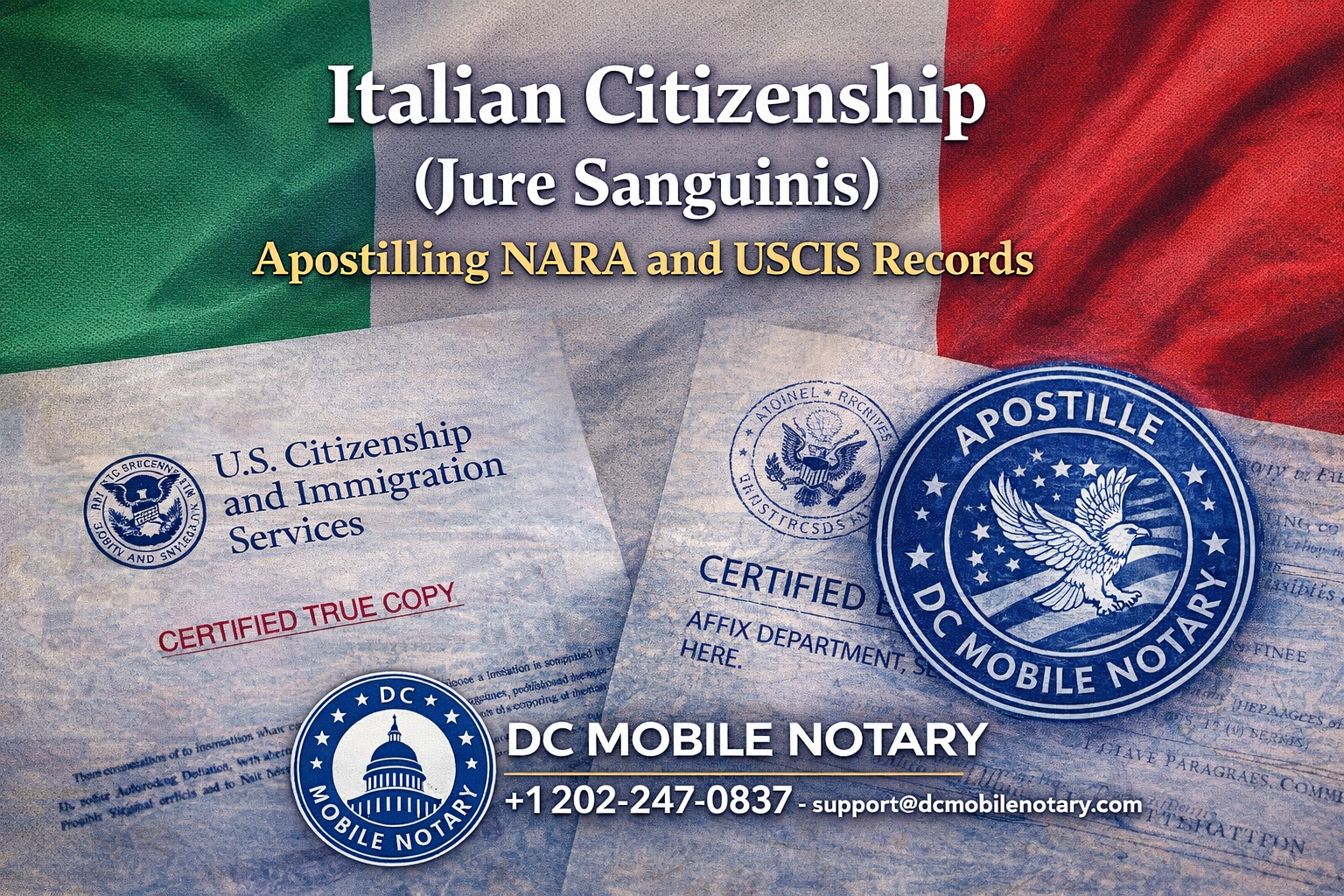Notary Public – What They Are and Why You Need Them

March 13, 2020
When it comes to doing business, one of the most difficult aspects of running a business of any kind, is wading through endless piles of paperwork. You see, as a result of fraudulent activity, governments and officials have really clamped down as of late, when it comes to legal documentation. Despite this being a little more time consuming for a lot of people, the ends really have justified the means in this instance, which is why notary public services are in such high demand.
If paperwork isn’t your strong suit, or if you are simply looking for ways of streamlining your business and speeding things up, you may wish to consider using services provided by a notary public. In some instances, you might not even have a choice, as it could be a legal requirement. But what exactly is a notary public, and what do they do? Well, that’s what we’re going to be looking at in today’s article.
Here’s a look at everything you need to know about using a notary public.
What is a notary public?
We’ll start with arguably the most important question first, which is what is a notary public? Typically, a notary public is an individual in a position of power, that is tasked with verifying the authenticity of important legal documents, paperwork, and transactions. Their primary role is basically to oversee the signing of important paperwork and legal documents, and to ensure that people that signed are who they say they are, and that they have signed where they were supposed to, when they were supposed to. Usually a notary public is a public official that has been appointed by a state government as an anti-fraudulent method.
What exactly does a notary public do?
Despite what some people may believe, notary publics are not assigned to provide legal advice, nor are they qualified to do so. They are usually there, impartially, to ensure that documents are signed by people who are supposed to sign them, and when. Often, you’ll also find that the consent provided by a notary public is the final step in things such as opening retirement accounts, in establishing power of attorney, or in closing a home.
So, is a notary public just there to stand, or sit, and watch people sign paperwork? Well, sort of. As mentioned, notary publics will need to see I.D in order to verify that people signing important legal documents and paperwork are who they claim to be. They will verify the signatures provided, they will ensure that signees are clear about the content they’re signing, and they will oversee signee’s willingness or lack thereof, to sign the documents in question. Once happy, notary publics will offer their literal stamp/seal of approval, and the documents in question will be legally binding and all above board.
Sometimes they will be referred to as common law notaries. Common law notaries are not lawyers and are therefore legally forbidden from providing legal advice.
So, what sort of documents would require the presence of a notary public?
Next up, we’re going to look at a few examples of the different types of documents that would require the presence of a notary public in the first place. These are by no means the only examples of documents requiring a notary public, but they’re some of the most common. These include:
· Loan documents
· Contracts
· Licences
· Estates
· Deeds
· Trusts
Why use a notary public?
Ah, the million-dollar question of why you should use a notary public in the first place. Well, in reality, there are plenty of reasons why you should use a notary public and there are plenty of reasons why you will need to use a notary public. In some instances, I.E when it comes to power of attorney, a notary public will need to be present to oversee the signing of the documents in question. Deeds and declarations will also likely need to be overseen by a notary public, in which case you should seek the services of your nearest public notary as soon as possible. Before a document to be used overseas is ready for apostille, it also needs to have the notary public’s seal of approval.

What exactly is legalization by apostille?
Often, when talking about notary, you can bet that ‘apostille’ will also be mentioned very shortly afterwards. But what precisely is legalization by apostille? Basically, once a document relevant to business overseas, has been approved by a notary public, the next step is to get it ready for apostille. Attaching an apostille certificate basically ensures that a document is now legally entitled to be utilized and be legally binding outside of the country. There is a slight catch, though, and that catch is that it can only be utilized on countries which are members of the Hague Convention. Still not quite sure? No problem, just look at the following:
1. Say for example, that you need to submit a legal documentation overseas to another country.
2. A notary public will check the document to see who it relates to and to ensure that everything is legal and above board.
3. They will then sign the document and add a short statement mentioning why it was signed in the first place.
4. The apostille is put in place to confirm that the notary public is indeed registered, and that their signature and details match official government records. Only local Secretary of State and State Department can issue the apostille certificates.
5. Now, the document can be accepted in overseas countries, where it will be legally binding in countries that are members of the aforementioned Hague Convention.
Where can you get documents notarized?
This is where things have been tricky for business owners in the past, because as you know, time is money. In the past, if you had a document that needed to be notarized, the only option would be to travel to your nearest notary public office. If your business was based in a busy town or city close by to a public notary office or two, no problem, you could maybe call in there on your lunch break to get the documents notarized. If, though, you were based in a more rural setting, or simply in a place that didn’t have a public notary close by, you would then have to make alternative travel arrangements to travel to your nearest public notary office.
This would not be ideal because there would be a lot of time and money involved, what with travel expenses, and time away from trading of course. Needless to say, it was a headache that most business owners could have done without. Nowadays, though, things are changing. Nowadays, mobile notary services are in very high demand and we can see why.
What is a mobile public notary?
Remember what we said earlier when explaining what a notary public is? Well, all of that still stands in this next section, except there is one slight difference. A mobile notary public will basically travel to you, or a location that is more convenient to you, instead of you having to go to them. As a business owner, or simply an individual that doesn’t have a great deal of time to spare, mobile notary publics are incredibly useful. They provide the exact same services as office-based notary publics, except for the fact that they come to you at your convenience, rather than you having to jump through hoops and run through rings to get to them to get your documents approved.
Why choose a mobile public notary?
Even though we’ve already looked at what mobile public notaries do, it is always good to expand on the benefits and look at why going with them is such a good idea. In this next section, we’re going to be looking at why you should choose a mobile public notary when it comes to getting your documents notarized legally, efficiently, and above board.
Save time – Time is of the essence, time is money, and time is a commodity that very few of us seem to have. Those that run and manage a business will especially know what we’re talking about, as there just don’t seem to be enough hours in the day. The last thing you want to be doing is arranging to travel for several miles across the state, or even the country, just to get one piece of paper notarized in a matter of seconds. With a mobile notary, they come to you so you can focus on managing your time more efficiently before it is time to get the paperwork notarized.
Less stress – Dealing with complex paperwork can also be stressful. The last thing you want is to be worrying about shutting up shop, losing a day’s trading, and dealing with busy public transport when traveling to your nearest public notary office. With mobile notaries, you get to relax as they travel to you at a time that is convenient for you.
Save money – Finally, if a mobile public notary comes to you, you don’t need to close early, lose trade, or spend money on fuel or public transport. Yes, you pay for their services, but ultimately, you end up saving money, and who wouldn’t want that?

‹ Previous
Next ›

Apostilling Articles of Incorporation for International Use

February 17, 2026

Italian Citizenship (Jure Sanguinis): Apostilling NARA & USCIS Records

February 13, 2026





